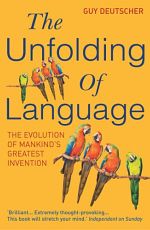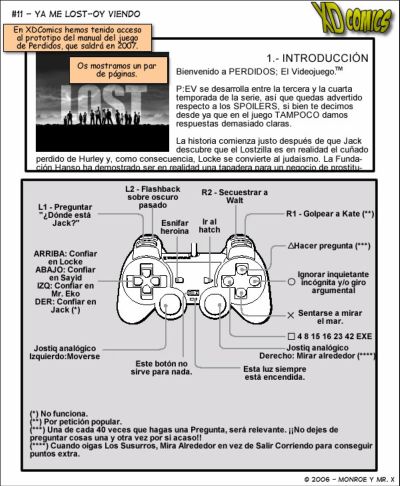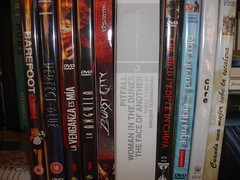 Estoy leyendo uno de esos libros fascinantes que me tocan de vez en cuando. Se llama The Unfolding of Language de Guy Deutscher y va sobre el cambio lingüístico, el proceso que hace que las lenguas pierdas ciertas estructuras y ganan otras. Por ejemplo, me he enterado de cómo van los verbos en árabe y sigo alucinando; es más, creo que seguiré alucinando durante semanas. Hay muchos ejemplo (el origen del “not” en inglés o la negación en francés) pero sobre todo del inglés, claro está. Me encantaría tener un libro sobre el cambio lingüístico pero
Estoy leyendo uno de esos libros fascinantes que me tocan de vez en cuando. Se llama The Unfolding of Language de Guy Deutscher y va sobre el cambio lingüístico, el proceso que hace que las lenguas pierdas ciertas estructuras y ganan otras. Por ejemplo, me he enterado de cómo van los verbos en árabe y sigo alucinando; es más, creo que seguiré alucinando durante semanas. Hay muchos ejemplo (el origen del “not” en inglés o la negación en francés) pero sobre todo del inglés, claro está. Me encantaría tener un libro sobre el cambio lingüístico pero en sobre el español. ¿Alguno de mis lectores filólogos conoce alguno que un no especialista pueda leer?
Bueno, a lo que iba. La introducción empieza así:
Of all mankind’s manifold creations, language must take pride of place. Other inventions –the wheel, agriculture, sliced bread– may have transformed our material existence, but the advent of language is what made us human. Compared to language, all other inventions pale in significance, since everything we have ever achieved depends on language and originates from it. Without language, we could never have embarked on our ascent to unparalleled power over all other animals, and even over nature itself.
But language is foremost not just because it came first. In its own right it is a tool of extraordinary sophistication, yet based on an idea of ingenious simplicity: ‘this marvellous invention of composing out of twenty-five or thirty sounds that infinite variety of expressions which, whilst having in themselves no likeness to what is in our mind, allow us to disclose to others its whole secret, and to make known to those who cannot penetrate it all that we imagine, and all the various stirrings of our soul’. This was how, in 1660, the renowned grammarians of the Port-Royal abbey near Versailles distilled the essence of language, and no one since has celebrated more eloquently the magnitude of its achievement.
Even so, there is just one flaw in all these hymns of praise, for the homage to language’s unique accomplishment conceals a simple yet critical incongruity. Language is mankind’s greatest invention – except, of course, that it was never invented. This apparent paradox is at the core of our fascination with language, and it holds many of its secrets. It is also what this book is about.




